This year's Rosling Seminar highlights the impact of climate on global health
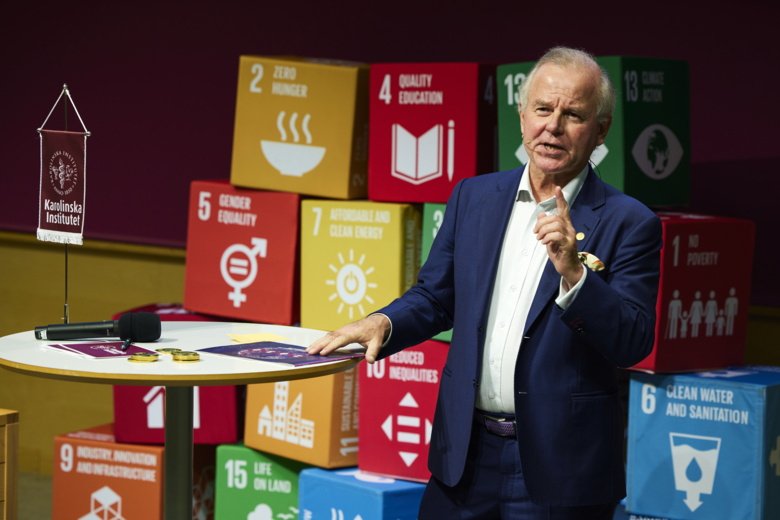
“Our planet, our health – an intergenerational dialogue” – the title of this year’s Rosling Seminar at Karolinska Institutet. The seminar, which was held 5 October, was jointly arranged by KI and the WHO with participants attending on site and online.
KI’s President Ole Petter Ottersen opened the seminar by welcoming participants and looking back on a towering figure in KI’s history: “Hans Rosling had a way of engaging students, and his legacy will lend both energy and vitality to today’s discussions. Always remember how he emphasized the importance of facts, both in debate and informing decisions. Today's policymakers need to be able to navigate in a fact-based world, and we are the ones who need to provide a roadmap”.
Director-General of the WHO, Tedros Adhanom Ghebreyesus, then took the floor with a speech in which he drew on recent climate disasters to emphasize the impact climate change has on global health.
“As we approach the COP 27 climate meeting in Egypt, it is crucial that we put our global health at the centre of climate negotiations”, urged Ghebreyesus.
The health benefits of shifting our approach
The second speaker, María P. Neira, highlighted the impact of climate change on our health. Natural disasters have an impact on access to food, clean water, housing and create the conditions for disease to proliferate. She emphasized the need for urban planning practices that emphasize health and sustainability with energy-efficient buildings and social spaces.
“Almost seven million people die prematurely every year due to air pollution. We need to be able to more clearly show the health benefits offered by a shift to fossil-free fuels and increased sustainability in or food production and waste management practices. This is where students and international universities can play a crucial role”, said María P. Neira, Director of the Department of Environment, Climate Change and Health at the WHO.
She cited an urgent need for scientific methods to quantify and demonstrate how climate change affects our health.
“Use the health argument to actively influence climate change efforts, paint a clear picture of the way climate affects our health, so that together we can help create a healthier and greener world”, said Neira.
Challenges for global health
Moderators for the seminar were Stefan Swartling Peterson, professor of Global Transformation for Health at KI and Noura Berrouba, president of the National Council of Swedish Youth Organisations (LSU). Together, they posed the questions: Whose health is really affected by climate change and what are the challenges ahead for global health?
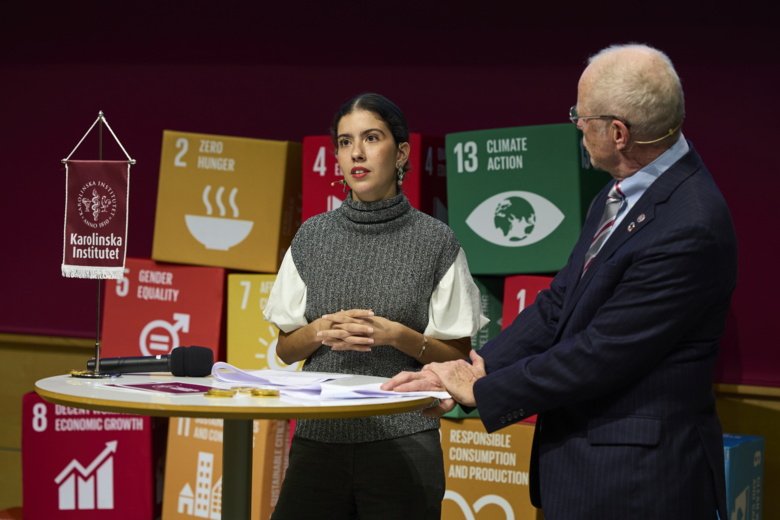
The answers to these questions can be found within the new, growing field of planetary health, said the seminar’s third speaker, Samuel Myers. The field explores the way expanding human civilization impacts the planet, and Myers emphasized that our impact has become so significant that it clearly crosses planetary boundaries. The negative trend is accelerated by the interaction of different factors, such as climate change, increased air pollution and the mass extinction of animal and plant species.
“This impacts the planet’s ecological conditions and therefore affects all dimensions of human health”, said Samuel Myers, Principal Research Scientist at Harvard TH Chan School of Public Health and Director of the Planetary Health Alliance.
Climate change affects the living environment
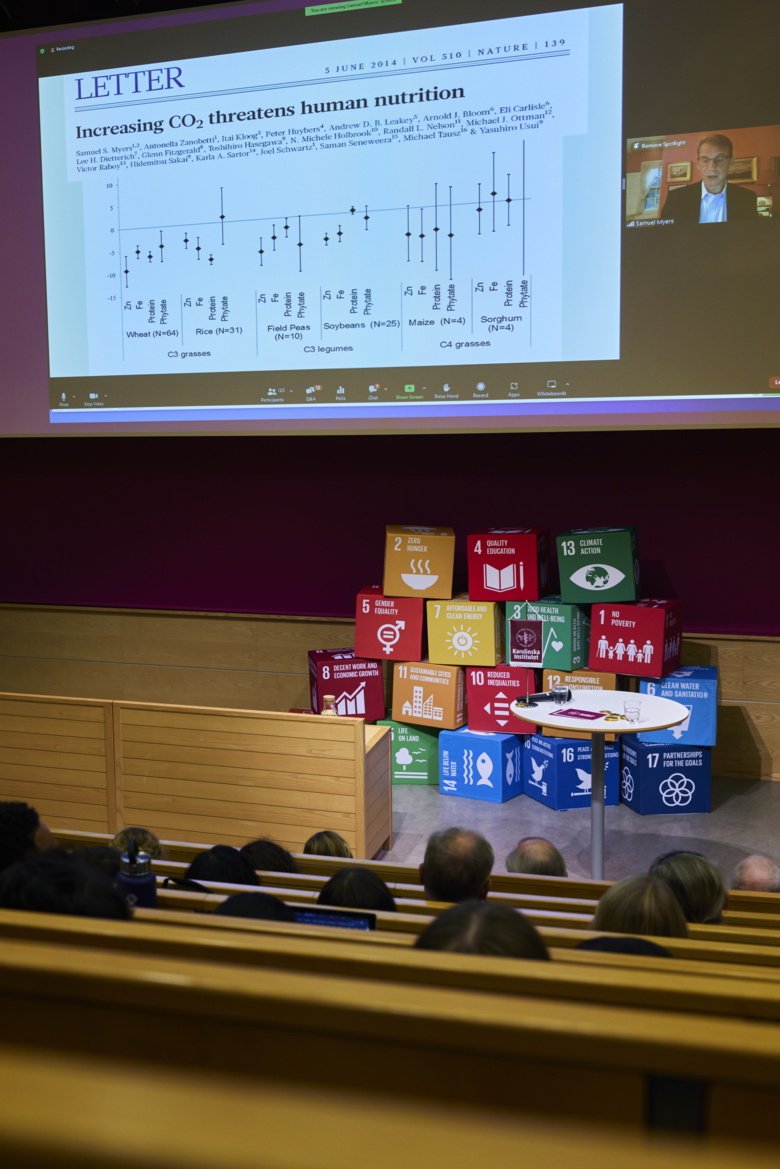
Myers pointed to several examples of research that shows how climate change affects our living environment. For example, research shows that carbon dioxide emissions have led to a reduction in the nutritional value of crops all over the world.
“In particular, we have seen a significant reduction in substances that are important for our health, such as iron, zinc and protein. Due to increased carbon dioxide emissions, about 150-200 million people will suffer from nutritional deficiencies”, he said.
The people who are hit hardest live in Africa and South Asia, but the bulk of the emissions causing the problem are generated on other side of the world. Other changes are impacting other parts of the world, including disruptions in food production in China and Eastern Europe due to a reduced number of pollinators.
“Our research clearly reveals the scope of our impact and shows that the changes affect us all. It is very clear that the changes on our planet will create a global health crisis”, says Myers.
Myers called for a global shift to reduce our ecological footprint and argued that the health sector needs to acknowledge that this is a critical step to securing our future.
The younger generation adds new insight
The last speaker was Omnia El Omrani, who has highlighted the importance of giving the younger generation a seat at the table in the policy debate and decision-making process.
“I am often asked why it is important to invite in young people like myself. The answer is that we not only offer our perspective as young people, but also add new insight through research and opportunities that can contribute to change”, says Omnia El Omrani, President Envoy on Youth, UN's Climate Change Conferences, and representative of the International Federation of Medical Students' Associations (IFMSA).
She presented several examples of how young people’s contributions to local initiatives and grassroots movements all over the world have made a difference. For example, in the production of fossil-free energy and development of new drought-tolerant crops.
Act more like an activist
This year’s Rosling seminar concluded with a dialogue between students in attendance and the participating speakers. In the dialogue, the students raised a number of relevant questions, such as what can we do to create a more hopeful outlook for countries that are already feeling the worst impacts of climate change? And what can we do to avoid climate anxiety or feelings of helplessness in the face of imminent climate change?
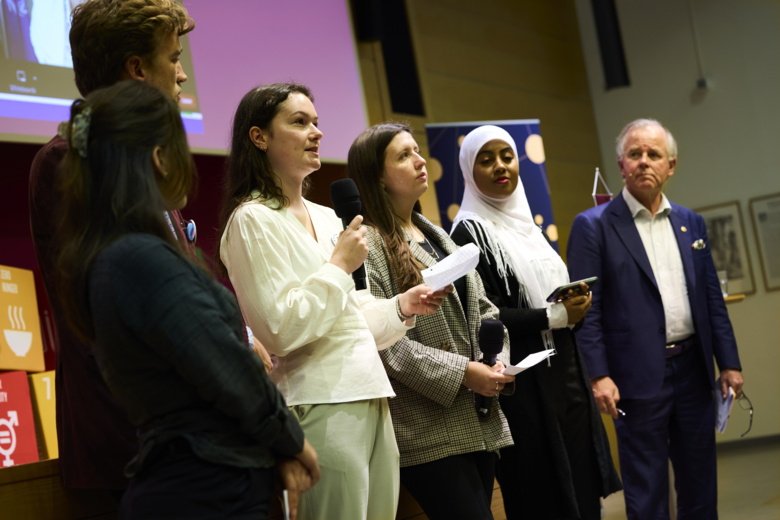
“The field of planetary health cannot rely on curiosity-driven research, it must be based on the critical message that we are trying to convey. In this respect, we need to act more like activists to find clear connections between our research and paths to change, and we need to get better at communicating our results to decision makers”, said Samuel Myers.
Hope comes from the opportunities before us, for example, to transform our energy system, and how much is actually being done”, he said. María P. Neira pointed out that there is a lot we already know about sustainable food production, which can contribute to a change, and that this knowledge is already spreading across the globe.
“The question is not whether we can achieve change, but whether we have the will to make this change happen. And here it is crucial that we organize, much like the youth movements, to create change together.
Students also called for supplementation to current education programmes so that they can acquire better tools to make a real contribution to a positive change. Not just knowledge, but something more concrete, so that they are better able to contribute to global health and sustainable development.
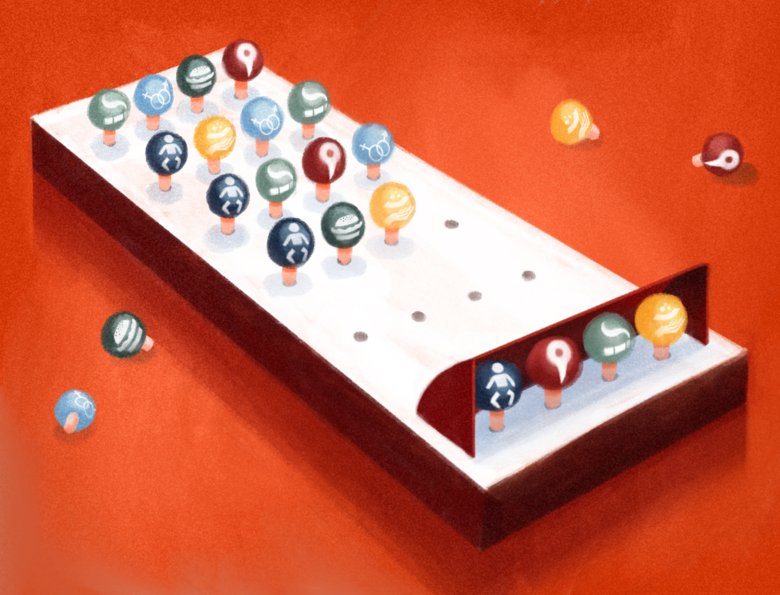 Photo: Sam Brewster
Photo: Sam BrewsterScientific challenge to measure inequity in health
How is health equity even calculated? Researchers Emelie Agardh and Matteo Bottai at Karolinska Institutet are looking for new methodological paths, among other things inspired by the game Master mind.
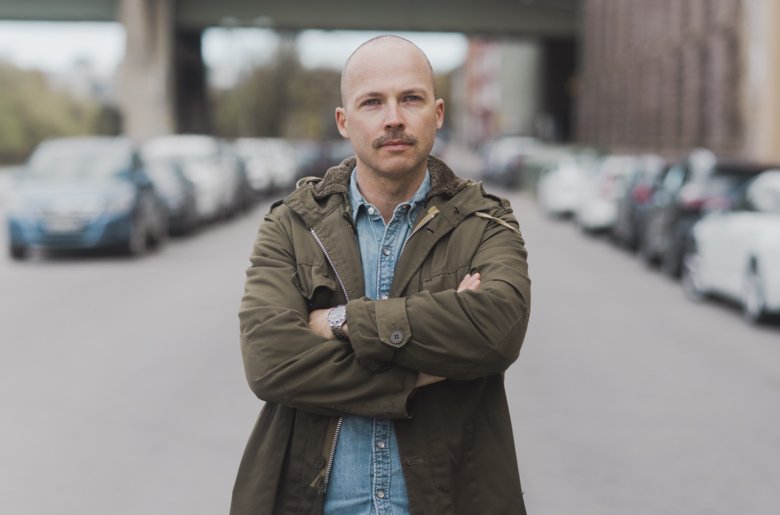 Photo: Johannes Frandsén
Photo: Johannes FrandsénCan climate worry be used constructively?
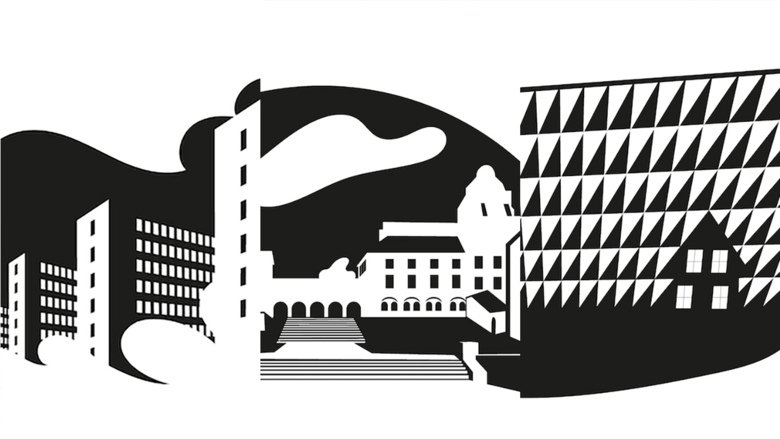 Photo: Stockholms Akademiska Forum
Photo: Stockholms Akademiska Forum